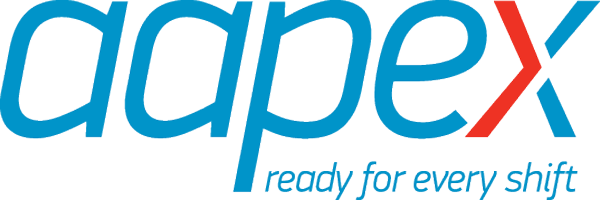Most Aftermarket Businesses Already Have This Advantage During COVID
Thursday, May 14, 2020

by Taylor Mitchell, senior vice president, technology and standards, Auto Care Association
The pandemic has created challenges in virtually every aspect of our business and personal life. Plans and roadmaps that were well underway just a few months ago were wholly disrupted as efforts shifted towards moving a workforce to virtual, cloud-based solutions and securing operations and personnel in ways we did not expect. To make this unprecedented change, many organizations were able to reap the benefits of relying on standard platforms, standard applications and standard setups. A common framework and shared “language” across an organization leads to a more agile company and one that can focus on how to shift their offerings to meet the current needs instead of wondering how employees can check email and work effectively outside of the physical office environment.
The automotive aftermarket also benefits from the use of standards. Our industry standards streamline how product information is managed and referenced throughout the supply chain in order to make the entire process more efficient. These industry-developed standards, named ACES, PIES, IPO and iSHOP, provide the framework and language that ensures the right part gets to the right place at the right time.
During a time where data becomes even more critical to understanding where the aftermarket is today and where it may be headed, we know that thanks to data standards, we can more accurately see the silver lining. While many aftermarket companies have felt the pressure of the current economic climate, we are starting to see vehicles travel more as restrictions lift and instances of online purchases of auto parts strengthening starting in mid-April, with the total number of purchase occasions exceeding the pre-COVID-19 baseline (Source: NPD Group).

Companies that most effectively communicate product data will be best positioned to take advantage of the fastest growing segment of our marketplace. It’s a new world, one where we can’t predict how long curbside pickup and social distancing guidelines will apply. One constant to consider is that your customers and consumers will need access to your product data online.
ACES and PIES provide a common framework and language to communicate the vehicle your part fits and all the essential product information like marketing, hazmat, installation information, and much more. ACES and PIES allow you to communicate with one trading partner or thousands of trading partners using the same data and the same language, allowing you to be agile and scale your business.
Once you know the right part, the next step is to see if it is in stock, and that is where the IPO (Internet Parts Ordering) standard comes in. Businesses who adopt the IPO standard can integrate with trading partners to check stock and inventory quickly and effectively.
The last stop on the supply chain is the service shop, and shops are no different in their needs for standards. The iSHOP standard helps connect tools, equipment, systems and software in the shop so technicians can focus on the job at hand, and the shop can offer the best service and experience to its customer.
When we all come together in November at AAPEX, and our entire supply chain meets to do business again, you’ll see how many companies up and down the line utilize these standards in order to help make your business run more efficiently. I’m sure I don’t need to remind any of you that efficiency means better margins, and especially these days, who isn’t looking for that extra margin point? I would also urge you to check out Joe’s Garage in the new Repair Shop HQ at AAPEX and ask how the companies are using iSHOP to create the best customer experience.
Adopting and staying current with these aftermarket standards is the right investment for your company to ensure you can remain agile in both the good and the challenging times. Make sure and connect with all the great solution providers on the AAPEX floor who build innovative applications using these trusted industry standards.
For more information about the Auto Care standards visit: autocare.org/technology/
Taylor Mitchell is the senior vice president of technology and standards for the Auto Care Association. During her time at Auto Care, she has worked with industry leaders to identify and solve issues with collection and cataloging of product information, the most prominent solution being the build of the Auto Care Vehicle Information Portal (VIP) which consistently delivers critical data to the industry.
Mitchell currently oversees the technology department’s projects and industry initiatives, including the continued expansion of the VIP which allows the association to aggregate and disseminate data to improve their businesses. Mitchell is also managing the technology department’s emerging technologies group that is instrumental in ensuring auto care industry businesses can take advantage of new vehicle technology. This work includes development of the association’s plan for a global vehicle interface, the development of HD product standards, streamlining processes and also managing the association’s technology standards committee.
